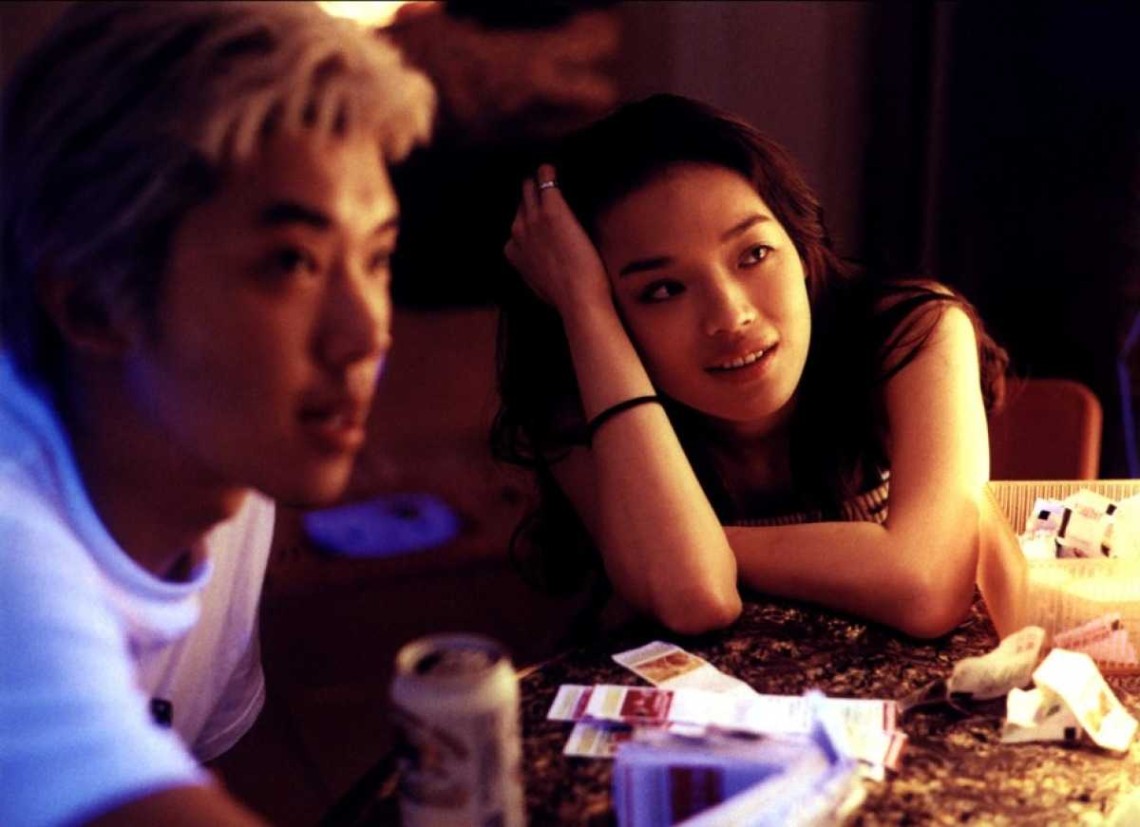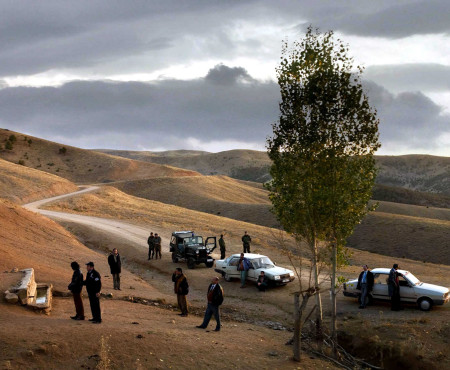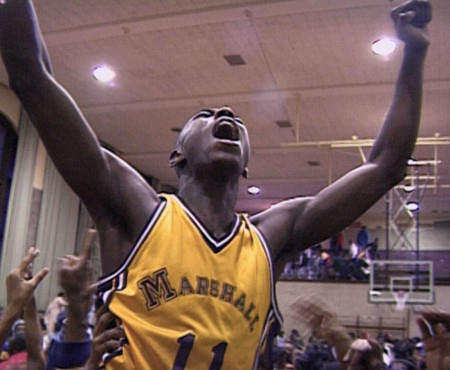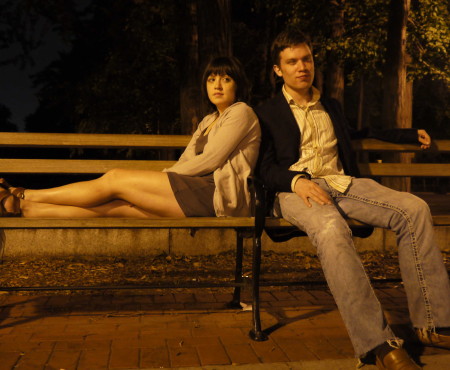The opening Steadicam shot of Millennium Mambo–of a young woman, Vicky (Shu Qi) skipping down a fluorescent-lit tunnel–is so distorted by slow-motion and a nostalgic voiceover that the scene comes to resemble a journey through a wormhole, a movement in distance that somehow becomes a movement in time. The narrator speaks of Vicky’s on-again, off-again lover Hao-Hao (Tuan Chun-hao), a belligerent burnout who always tracks her down no matter how many times she flees him; this information adds a sudden sense of dread to Vicky’s glances back to the camera. What once seemed like teasing, coquettish glances now become shifty, nervous looks, as if the camera itself was this abusive boyfriend and her recessive traipse into the tunnel was less an invitation to travel back in time with her than her attempt to escape, even if it means hiding out in her past with Hao-Hao.
Hou Hsiao-hsien rose to the pinnacle of modern world filmmakers with his formally daring historical dramas, works of deep focus in aesthetic and ethical terms. But Millennium Mambo marks a radical break for the filmmaker. Not his first work set outside Taiwan’s 20th century past, the film nonetheless sees Hou enter the 21st century with an inverted style, one dominated by a roving camera that films in shallow focus. Older Hou films forced the viewer to stare at frames for what felt like eons before finding the ideal focal point, but here, the camera remains pressed close to its Taipei youth as they drift from club to club in a constant loop of 4/4 techno and uppers.
These emotionally and politically disengaged youth is as far from Hou’s erstwhile protagonists as his new camera style is from the look of previous films, yet Hou does not simply judge the kids to be burnouts unworthy of the efforts his generation put into fighting for a better future. Instead, he connects this depiction of wayward youth stumbling through meaningless relationships and chemically numbed consciousness to the struggles witnessed in Hou’s other work. Vicky oscillates between her tortured relationship with the jealous, shiftless Hao-Hao and the older, stabler gangster Jack (Jack Kao), both of whom resemble lower-class descendants of the wealthy brothel denizens of Flowers of Shanghai. The men cling to Vicky the way the flower house patrons emotionally depended on their concubines, but they are similarly feckless when it comes to actually improving Vicky’s life. Hao-Hao steals her money to buy drugs but resents that she gets a job as a stripper to support the both of them, while Jack provides comfort and kindness but also an unmistakable sense that her battles for equality with Hao-Hao will be a moot point with the old, confident man, that his generosity and care will come at the expense of her liberty.
As if anyone in this film could be said to be free. If history was a direct subject in the works that established Hou on the international circuit, it hangs at the periphery of this movie like a ghoul, never visible but always throwing obstacles in the characters’ paths. The film connects the listlessness of modern youth to the holdover pressures of Taiwanese culture in fleeting lines of dialogue or intimated connections, as when the narrator links Hao-Hao’s ruinous addictions to getting hooked on speed as a means to starve himself out of consideration for conscription. Taiwan’s complicated colonial history surfaces when Vicky meets two half-Japanese brothers who annually return to their hometown to help their grandmother run her inn during a film festival; Vicky gets along with the boys and even accompanies them on one trip, but a distance seems to separate her and them, not the direct memory of imperial occupation but a lingering sense of some incompatibility.
Above all, the kids in this film face the hardship of finding themselves with no objective sense of cultural identity against which to compare their own progress. After that alluring opening, Hou cuts to a scene of a boy performing magic for Vicky and some friends, and he mentions having a certificate proving he came in third at an international competition. Why, they ask, would this certificate for a magic contest held in China be written in English? “It looks more professional,” he replies without batting an eye, and he even uses international coins for his tricks, oblivious to the implications of casually adopting everyone else’s culture but his own.
Glimpses like that fill in a context in lieu of plot, and that the film is so hard to pin down can be partially attributed to its fractured approach to time. Millennium Mambo is a film of the future, set in a past that is the contemporary viewer’s present, and Mark Lee Ping-bin’s cinematography unfurls in a blur of motion and color that clarifies only ephemeral emotions, like the reflecting of a blinking yellow light that hovers over two people making love, or Jack’s tinted windshield illuminated a second at a time by tunnel lights, throwing the sight of Vicky sleeping on his shoulder into fleeting chiaroscuro. Hou’s earlier films showed people compressed in the crucible of history. Millennium Mambo suggests it is equally difficult to come of age without an obvious historical event to force one onto a set path. The film ends with a cautious, vague note of hope, but also a sense of futility, for without a sense of self, one can never truly live in a state of peace, only ceasefire.
If you’re interesting in watching Millennium Mambo on Fandor, use your Movie Mezzanine coupon for an exclusive discount and access to a breathtaking library of cinema!




















